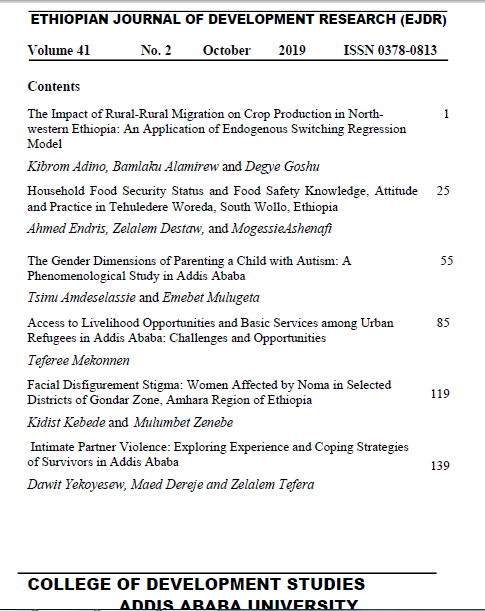Household food security status and food safety knowledge, attitude and practice in Tehuledere Woreda, South Wollo, Ethiopia
Keywords:
Household food security, food safety knowledge, attitude, practice, Tehuledere, South Wollo, Ethiopia.Abstract
A community based cross-sectional study was carried out in a rural and periurban
kebeles in Tehuledere woreda between January24 and February 23,
2019 to assess the food security status of households and their food safety
knowledge, attitude and practice (KAP). Food security status was assessed by
Households Food Insecurity Access Scale (HFIAS, and household food safety
KAP were assessed in terms of food handling, personal hygiene and water
sanitation. A total of 245 households were selected randomly from the two
kebeles. Data were collected by using structured questionnaires and analysed
using descriptive statistics and t-test was used to assess significant differences
between kebeles. HFIAS analysis indicated that only 18% of the households
were food secure. Most of the sample households were mildly food insecure
(54.4%) and a considerable proportion were moderately food insecure
(27.8%). There were no severely food insecure households. Food safety
knowledge and practice were generally unsatisfactory. Respondents, in
general, showed low level of food safety knowledge (<50%) and poor level of
food handling practices, although attitude towards safe handling of food was
positive (>70%).

